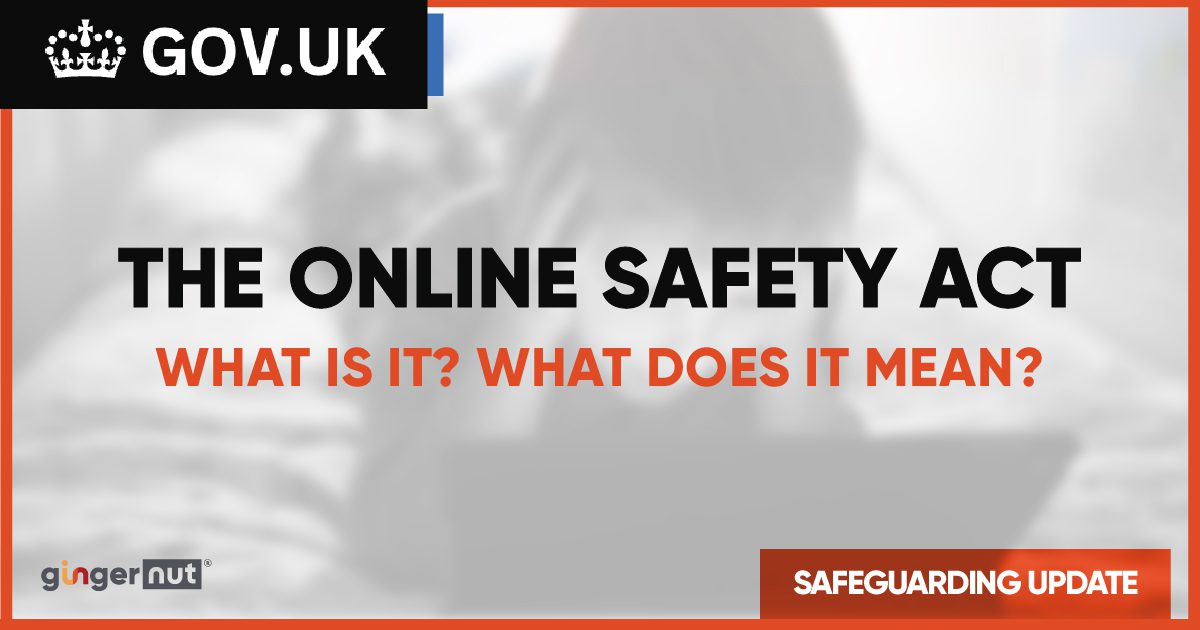SAFEGUARDING
UK To Introduce The Online Safety Act In Bid To Better Protect Vulnerable Internet Users
Content Warning: Sensitive Topics
This blog post delves into topics that may be sensitive or emotionally challenging for some. We care about your well-being and encourage you to exercise discretion while reading.
This blog post makes reference to terrorism, revenge pornography, bullying, self-harm, eating disorders, and child sexual abuse; all within the context of the UK’s new legislation for online safety. Our intention is to educate and inform, particularly about the protection of children in the digital space. If you find any content distressing, please prioritise your comfort and seek support.

The UK has taken a significant step towards enhancing online safety with the Royal Assent of the Online Safety Act.
This groundbreaking legislation, which has undergone thorough examination and debate in both the House of Commons and the House of Lords, aims to establish the UK as the safest place in the world to be online.
Under this new law, social media companies are legally obligated to swiftly eliminate illegal content, such as terrorism and revenge pornography, and to prevent children from accessing harmful material, including content related to bullying, self-harm, eating disorders, and pornography. Companies failing to adhere to these regulations could face substantial fines, potentially amounting to billions of pounds. Additionally, if they do not take necessary actions to protect children as mandated by Ofcom, their executives could face imprisonment.
Technology Secretary Michelle Donelan highlighted the historic significance of the Act, emphasizing its role in safeguarding British society online, particularly for children. The Act mandates social media platforms to remove illegal content promptly, enforce age restrictions, and enhance transparency about online risks for children. It also requires platforms to provide accessible reporting mechanisms for issues encountered online.
Home Secretary Suella Braverman emphasized the Act’s strong focus on protecting children from sexual abuse on social media platforms. Lord Chancellor and Secretary of State for Justice, Alex Chalk, pointed out that the Act aims to create a safer internet for everyone, targeting trolls and other online abusers.
The Act also empowers adults with greater control over their online experience, offering three layers of protection: removal of illegal content, enforcement of platform terms and conditions, and options to filter unwanted content. Non-compliance by social media platforms could result in fines up to £18 million or 10% of their global annual revenue, whichever is higher.
The government has also strengthened provisions to combat violence against women and girls, making it easier to convict individuals who share intimate images without consent and criminalizing the non-consensual sharing of intimate deepfakes. Offenders could face up to two years in prison for these crimes.
NSPCC Chief Executive, Sir Peter Wanless, acknowledged the Act as a watershed moment for child safety online. Ofcom Chief Executive, Dame Melanie Dawes, stated that the new laws empower Ofcom to start making online life safer for UK citizens. Ofcom will focus on tackling illegal content and prioritizing rules against the most harmful content.
In preparation for the Act’s enforcement, many social media companies have already begun implementing changes, such as TikTok’s enhanced age verification and Snapchat’s removal of underage user accounts. Ofcom will immediately start working on implementing the Act’s provisions, with a phased approach to enforcement.
This Act represents a significant advancement in online safety, aiming to protect users, particularly children, from various online harms and abuses.